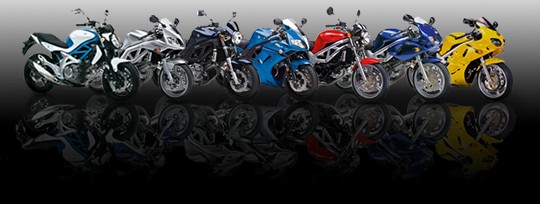 |
 |
| Bikes - Talk & Issues Newsworthy and topical general biking and bike related issues. No crapola! Need Help: Try Searching before posting |
 |
|
|
Thread Tools |
|
|
#1 |
|
Guest
Posts: n/a
|
Hi,
In terms aof engine oil what do these mean? -> API, SE, SF , SG, API, SH, SJ, JASO, MA. Also what is in your opinion the best SAE engine oil for a high reving engine? Last edited by SUPERSTARDJ01; 26-11-09 at 01:47 PM. |

|
|
|
#2 |
|
Member
Mega Poster
Join Date: Jul 2003
Location: Warwickshire
Posts: 2,804
|
In the simplest terms
API = American Petroleum Institute - a body who oversees the testing and rating of all stuff to do with fuels and oils SG, SH etc = the wear protection standard which the particular oil meets. The "S" stands for spark, there is a similar "C" rating system for compression ignition (Diesel). Basically the second letter goes in alphabetical order, and any classification should supercede an earlier one (SH is at least as good as SG etc) JASO = a similar institute to the API but based in Japan I believe. JASO-MA is a test specifically to demonstrate that an oil is suitable for use with wet clutch systems (as used in most but not all bikes). SAE (another institute) is a rating system typically quoted when referring to an oil viscosity. It usually has two ratings (multi-grade), one when cold (zero F or -18C) which is the "W" number, and one when hot (around 100C), so you get 10W-40 for example. The actual numbers refer to units of viscosity, but different units at the 2 temperatures just to confuse things. As a rule of thumb, use the lowest viscosity the engine manufacturer recommends for the ambient temperature you'll be using it in. Most bikes will recommend a 10W-40 or a 10W-30, but check the manual. Bike oils do differ technically to car oils, there are typically extra anti-wear additives to deal with the integral gearbox requirements (cars generally have separate gearboxes), and there's the aforementioned wet clutch business. Oils can be produced in a variety of ways, with different properties resulting. They can be straight from mineral sources ("mineral"), or synthetically produced ("synthetic") or can be partly ("semi") synthetic (that's the very simplified explanation anyway). Most road bikes will be happy with a semi-synthetic. Fully synthetics can offer extended service intervals and better stability at very high metal temperatures, but are often more than many engines actually requires in real life.
__________________
"Artificial Intelligence is no match for natural stupidity" Last edited by embee; 27-11-09 at 12:05 AM. |
|
|

|
 |
|
|
 Similar Threads
Similar Threads
|
||||
| Thread | Thread Starter | Forum | Replies | Last Post |
| Engine Breaking? Hopefully not. Engine braking - is that OK? | butterick99 | SV Talk, Tuning & Tweaking | 14 | 12-09-09 10:31 PM |
| Dead Sv Engine or Engine block.... | Andy Jeffries | Stuff Wanted | 6 | 15-08-09 07:46 PM |
| Engine braking... any hazzards engine wise? | John 675 | SV Talk, Tuning & Tweaking | 21 | 28-03-08 07:20 PM |
| What Engine Oil? | Girth | SV Talk, Tuning & Tweaking | 7 | 11-05-07 08:39 AM |
| Engine out or not ? | Banus | SV Talk, Tuning & Tweaking | 18 | 05-01-06 11:22 AM |